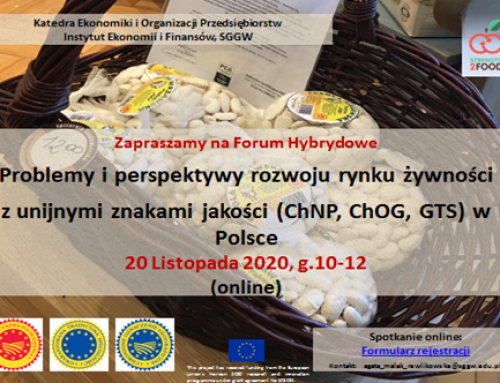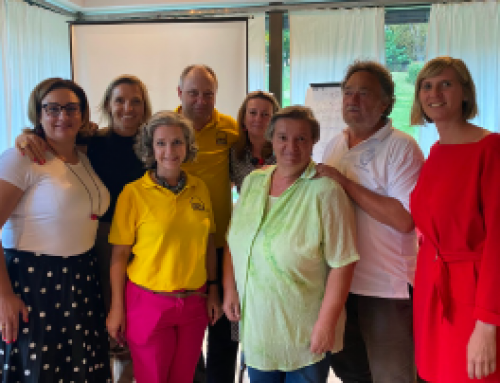The 3rd and final UK hybrid forum “Creating sustainable and healthy food procurement: what is the role of local foods?” was hosted on 12th March 2020 at Newcastle Civic Centre. This open public dialogue, organised by Newcastle University and Food Nation, was delivered in partnership by Strength2Food and Food Newcastle. It sought to deepen current understanding of food procurement strategies and the role of local food in creating a healthier and sustainable food system in the public and private sector.
In total, 18 people attended the discussion, including expert leads from public procurement (NHS Hospital, University and Schools), local food producers/ suppliers/ distributors, food partnerships and academics from Newcastle and the wider north-east region, as well as Scotland.
The discussion, chaired by Joanna Lacey, shared insights on the following themes:
- Barriers/ opportunities for local food systems and shortening the food supply chain
- Localisation and sustainability targets for public sector food procurement (school meals, NHS hospitals, etc.)
- Priorities and sustainability trade-offs in a procurement context
- Key challenges and practicalities for small-to-medium scale producers/ suppliers to engage with public sector food procurement
- Strategic plan and pledges to improve procurement policy
Three key expert presentations set the scene, to ‘inspire’ the discussions:
- Local Food Systems – Dr Barbara Tocco, Newcastle University Business School
- Public sector food procurement in a school context – Prof Angela Tregear, University of Edinburgh Business School
- Introducing opportunities in NHS Hospital Trust food procurement – Geoff Moyle, NHS Newcastle Hospital Trust
The extensive roundtable discussions, chaired by Dr Carmen Hubbard, highlighted the following:
- Complex functioning of food procurement and sustainability targets. Although local food systems can provide numerous welfare benefits in the context of public procurement and delivery of public goods (economic, social, environmental, nutritional), localisation targets for procurement, per se, do not imply an optimal or best outcome solution, especially in delivering nutritional outcomes and low environmental impact (carbon footprint). Clear criteria and targets (realistic and measurable) in contracts are therefore required to achieve sustainability goals.
- Procurement can open up opportunities for small-to-medium scale producers. Although meeting tendering criteria may be more realistic for medium sized businesses, national distributors can be an important enabling factor. In this respect, working directly with food service providers may help ensure achieving sustainability targets, especially considering their key role, ability and enthusiasm to deliver and engage with different local/ smaller producers.
- Recognition and overcoming of barriers for small suppliers. Procurement procedures and tendering processes can be particularly cumbersome for smaller suppliers – a tender procurement ‘pathway guide’ was suggested as a beneficial tool, for small-to-medium scale producers, to navigate the complexity of the process. The discussion also highlighted the presence of numerous risks and repercussions for small producers to get involved in these alternative arrangements.
- Consumer perspectives and demand patterns. From a demand side, food culture, education and skills were mentioned as important barriers to fully appreciating and valuing fresher, seasonal, healthy food. It was recognised how consumer behavioural change requires a large-scale shift in the current system – the promotion of healthy and sustainable food is typically done on voluntary basis/ individual level without designated funding and integrated approach – goodwill of organisations (e.g. Food Nation), school teachers / caterers, etc. Food education starts in schools – cookery classes for kids and invitations to partners can be particularly useful for improving skills and, in turn, achieving procurement sustainability targets at local authority level.
What next?
- Food Newcastle will integrate this evidence into the Newcastle Good Food Plan within Theme 4 ‘Strengthening the local sustainable food economy’ and Theme 5 ‘Transforming catering and food procurement’ and enhance existing partnerships.
- Food Nation will continue their food education programme to support schools, families and members of the community on good healthy food choices and improve current behaviour and attitudes
- Newcastle University will work in partnership with FADNE (Food and Drink North East) and Procurement officers to produce a tender procurement ‘pathway guide’, for small-to-medium scale producers, to navigate the complexity of tendering process and shortening the supply chain
“The hybrid forum highlighted the complexities of public procurement and the difficulties faced by those overseeing public procurement and SMEs wanting to act as suppliers. The actions agreed by Food Newcastle, Food Nation, Newcastle University and FADNE are positive steps to achieving a better public sector food procurement system that works for all.” – Prof Matthew Gorton, Coordinator of H2020 Strength2Food Project, Newcastle University Business School








